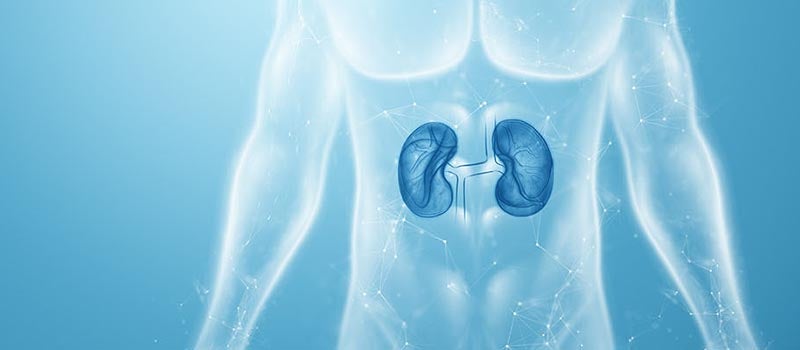Top 10 Reasons to See a Urologist
Is a urologic problem making life uncomfortable, difficult or frustrating?
Incontinence, sexual dysfunction, frequent urination, and other chronic problems can be painful, embarrassing, or even signs of much more serious conditions. But here’s encouraging news: Life-changing new treatments at St. Mary are bringing men and women easier, more effective solutions than ever before. Our experts see and treat these conditions every day—so there’s no need to be embarrassed, and every reason to seek help today.
Don't let your problem disrupt or endanger your life. See a urologist if you have:
Make an Appointment
Find a urologist close to home and make an appointment today.
If you detect blood in your urine, immediately contact your primary care physician for help arranging an appointment with a urologist. If your urine is not the normal pale yellow color, but looks brown, pink, or tea- colored, it could include blood. This could be a temporary condition caused by an injury or over-vigorous exercise. But it could also indicate far more serious conditions, such as:
- Bladder infection
- Kidney infection
- Kidney stones
- Bladder, kidney, or prostate cancer
Urinary incontinence — the loss of bladder control is a common and often embarrassing problem. The severity ranges from occasionally leaking urine when you cough or sneeze to having an urge to urinate that’s so sudden and strong you don’t get to a toilet in time. If urinary incontinence affects your daily activities, don’t wait to see an urologist.
In women, this can be caused by urinary tract infection. In men, the most common causes are urethritis and certain prostate conditions. Other causes include:
- Bladder stones
- Chlamydia
- Cystitis
- Sexually transmitted infections
- Kidney stones
- Prostate inflammation
- Vaginal infection
- Yeast infection
This pain is a symptom of kidney stones, and specific symptoms can include:
- Severe pain when standing, or even sitting or lying down
- Blood in your urine
- Difficulty urinating
- Nausea, vomiting, and fever due to infection
These symptoms can also indicate other urologic problems, so it’s important to consult a urologist quickly. Why?
- Left untreated, lifetime recurrence rates are 60-80 percent and can cause permanent kidney damage
- If you are pregnant, kidney stones may cause premature labor or intractable pain (potentially fatal if untreated), or lead to urosepsis (potentially fatal if not immediately treated)
This condition occurs in women and can affect the vagina, uterus, urethra, and cervix. Nearly 50 percent of mothers experience this problem. Several factors can cause it to develop, including:
- Age
- Obesity
- Vaginal childbirth
- Weakened muscles
Symptoms can include:
- Tissue in or protruding from the vagina
- Pain in the pelvis
- Difficulty urinating
- Feeling your bladder is not empty immediately after urinating
- Urine leakage during sneezing, coughing, or exertion
- Increased frequency of bladder infections
- Painful intercourse
- Low back pain
Although many women are too embarrassed to discuss their condition, effective non-surgical and surgical treatment options are available.
Symptoms can be hard for you to detect, but you may see and feel a bulge created by the hernia. This bulge is usually more obvious when you are standing. Coughing or straining can make it even more noticeable.
An estimated 20 to 30 million American men suffer erection problems, yet more than 90 percent are too embarrassed to seek treatment. Erectile dysfunction is not only frustrating, but also dangerous, since it may indicate a more serious medical condition. Age is a factor, especially for men over 40. Other causes include:
- Cardiovascular disease
- Diabetes
- Depression
- Bladder stones
- Chlamydia
- Cystitis
- Sexually transmitted infections
- Kidney stones
- Prostate inflammation
- Vaginal infection
- Yeast infection
OAB, also called incontinence, can have a significant negative impact on your daily life, work, sleep, and relationships with friends and family. Symptoms include:
- Blood in your urine
- Frequent need to urinate
- Pain or burning sensation while urinating
- Pain in your lower back
Women are more prone to UTIs. Nearly 53 percent of women will experience at least one UTI during their life.
The prostate is a male gland located just below the bladder, surrounding the urethra. When enlarged, the prostate presses on the urethra and blocks urine flow. This typically occurs in men over 50 and could indicate the presence of prostate cancer. Symptoms include:
- Blood in your urine
- Frequent need to urinate
- Pain or burning sensation while urinating
- Pain in your lower back
Women are more prone to UTIs. Nearly 53 percent of women will experience at least one UTI during their life.
UTIs can be caused by bacteria, the inability to get rid of an infection, or repeated infections in people with complicated urinary tracts. Symptoms include:
- Frequent urge to urinate but weak urine flow
- Pain in your lower back, pelvis, or thighs

